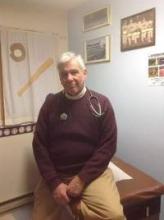After suffering through reduced reimbursement year after year and encountering government rules that caused her to restrict the way she practiced, Atlanta otolaryngologist Dr. Elaina George was fed up with Medicare and what seemed its endless red tape.
“We found that the time it took to be reimbursed was much longer than the average commercial payer,” Dr. George said in an interview. Because of global period payment rules, “several times, we got paid nothing. [Medicare] stopped me from doing the things I was trained to do. I stopped doing head and neck surgeries because it wasn’t cost effective.”
Instead of complaining or appealing payment decisions, Dr. George made a more drastic move. She dropped Medicare altogether. Nearly a decade later, the solo practitioner continues to opt out of Medicare, obtaining payment through some commercial insurers and direct pay contracts with patients.
“Direct pay is going to be the future, and anybody who can figure out how to work around the (traditional) insurance model is going to save money,” said Dr. George, an advisory council member of Project 21 black leadership network, an initiative of the National Center for Public Policy Research, a conservative think tank and policy institute.
Dr. George is far from alone. She is part of a growing vocal minority that says dropping Medicare is the only remedy to ongoing payment reductions, extended waits for reimbursement, audits, and growing regulations, such as meaningful use. The feasibility of leaving the program however, depends on specialty, geographic location, and patient base, physician leaders say.
Measuring the number of doctors who opt out of Medicare isn’t easy. The U.S. Department of Health & Human Service’s Office of Inspector General (OIG) said in a 2012 letter to the Centers for Medicare & Medicaid Services (CMS) that CMS does not maintain sufficient data regarding physicians who opt out of Medicare, and therefore the OIG could not complete an analysis into reasons doctors choose not to participate.
However, federal data released to the Wall Street Journal in 2013 show that 9,539 physicians who previously accepted Medicare opted out of the program in 2012, up from 3,700 in 2009. The CMS had never before released annual opt-out figures, and the data cannot be found on CMS’ website. A CMS spokeswoman declined comment for this story.
Despite the drop-out figures, government statistics paint a picture of growing physician participation in Medicare. A 2014 CMS report shows that a total of 1,226,728 health providers of all specialties participated in Medicare in 2013, up from 1,089,306 in 2012, according to federal data. (The report noted physicians may have been counted in more than one specialty.) There were 219,536 primary care physicians/suppliers who treated Medicare patients in 2013, up from 215,919 in 2012.
But the stats on physician participation do not tell the whole story, said Dr. Austin King, president of the Texas Medical Association and an Abilene otolaryngologist. While many physicians take Medicare patients, he notes that a large portion do not accept new Medicare patients. In Abilene for example, Dr. King said he knows of no internists who accept new Medicare patients. The dilemma means as more of the population reaches Medicare age, there could be fewer doctors to treat them.


